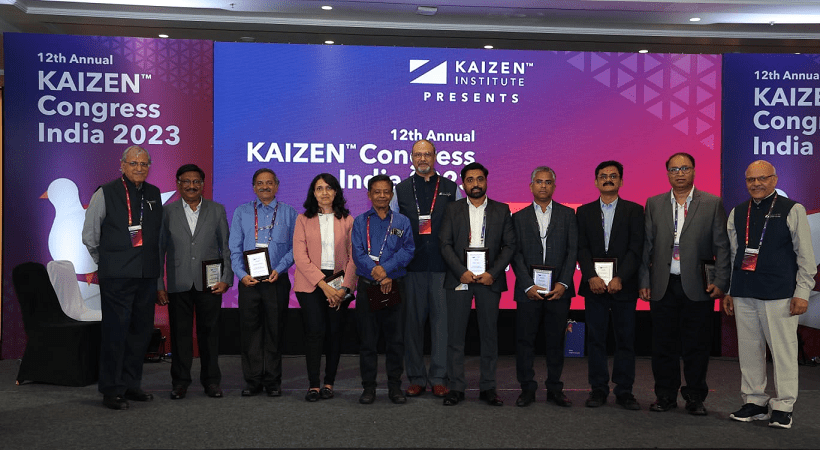Inputs from Harry Hakuei Kosato- Director and India Representative, Kikkoman India
– Can you elaborate on the specific ingredients used in crafting the new Kikkoman Dark Soy Sauce? Kikkoman Dark Soy Sauce is made from Kikkoman Honjozo Soy Sauce as the main ingredient, and other seasonings are added to make the soy sauce suitable for Indian-Chinese cuisine. Kikkoman Soy Sauce is made from soybeans, wheat, salt, [...]


– Can you elaborate on the specific ingredients used in crafting the new Kikkoman Dark Soy Sauce?
Kikkoman Dark Soy Sauce is made from Kikkoman Honjozo Soy Sauce as the main ingredient, and other seasonings are added to make the soy sauce suitable for Indian-Chinese cuisine. Kikkoman Soy Sauce is made from soybeans, wheat, salt, and water, fermented with koji mold, yeast, and lactic acid bacteria over a period of many months, and is rich in umami and aroma components produced in the brewing process. Kikkoman Dark Soy Sauce is a new dark soy sauce with a rich flavour and appetizing aroma delivered from this Kikkoman Honjozo Soy Sauce.
– What inspired Kikkoman to develop a dark soy sauce exclusively for the Indian market after 350 years of its history?
Kikkoman aims to make Kikkoman Soy Sauce a truly global seasoning, and to have people enjoy Kikkoman Soy Sauce not only for Japanese food, but also to become an everyday seasoning used in Indian households in the future. Kikkoman launched its first dark soy sauce for the Indian market because of the historical familiarity with Indian-Chinese cuisine, which has evolved uniquely in India, and the fact that dark soy sauce is often used in Indian-Chinese cuisine here.
Conventional dark soy sauces in India mainly contain added colouring agents, and some are fortified with artificial seasonings. However, Kikkoman wanted to develop a dark soy sauce without colouring agents or artificial seasonings that would deliver a more natural colour and deeper flavour. We developed the Kikkoman Dark Soy Sauce to offer the great taste of soy sauce to as many people as possible.
– How does Kikkoman ensure that the dark soy sauce maintains its rich color without the use of chemicals or artificial seasonings?
The reason Kikkoman was able to reproduce the rich colour without the use of chemicals or artificial seasonings are thanks to a proprietary technology developed by our product development team in Japan that took 4 years. Details of this technology are confidential, but are based on Kikkoman’s many years of research into naturally brewed soy sauce.
– Could you explain the process of crafting the Kikkoman Dark Soy Sauce, including the proprietary technology used to achieve its deep color?
Pardon us, we cannot provide details of our production process nor proprietary technology, because of confidentiality.
– What challenges did Kikkoman face during the four years of research and development in creating a natural dark soy sauce?
We faced two major challenges in creating Kikkoman Dark Soy Sauce. First, we needed to understand how dark soy sauce tastes great to Indians and what kind of dark soy sauce goes well with Indian-Chinese food. Second, we needed to find out how to achieve the deep colours without using colouring agents.
To solve the first challenge, we first made numerous trips to various Indian locations to conduct thorough research on dark soy sauce and Indian Chinese food. We collected samples of various dark soy sauces sold in India, brought them back to Japan, and analyzed their ingredients in our laboratory. In addition, we studied authentic Indian-Chinese cuisine and how it is prepared in households, to understand what kind of colours and flavours are desired.
Regarding the challenge of how to reproduce the deep colours without using colouring agents, the Japanese product development team made numerous prototypes to come close to the deep hues and flavours demanded by Indian-Chinese cuisine. Ultimately, we spent four years developing our proprietary technology and succeeded in developing a dark soy sauce that achieves a natural deep hue without the use of colouring agents.
– How does the flavor profile of the Kikkoman Dark Soy Sauce compare to traditional soy sauces, particularly in terms of umami and depth?
Kikkoman Soy Sauce is made using only four ingredients: soybeans, wheat, salt, and water. Kikkoman Soy Sauce is made using the traditional Japanese brewing process known as “Honjozo”. We call this Honjozo method, which makes use of the natural powers of fermentation, “naturally brewed”, resulting in a soy sauce which is clear and bright reddish-brown colour. Kikkoman soy sauce is known as an “All-purpose seasoning” in the world, and is widely used not only in Japanese cuisine, but also in Chinese and Asian cuisine, Western cuisine, and many other cuisines.
Kikkoman Dark Soy Sauce, on the other hand, is made to Indian tastes to suit Indian-Chinese cuisine. As a result, it has a deep colour preferred in Indian-Chinese cuisine. In addition, Kikkoman Dark Soy Sauce uses Kikkoman Honjozo Soy Sauce as its main ingredient and has the rich umami and deep flavour of Kikkoman Soy Sauce. While most dark soy sauces sold in India contain colouring agents and artificial seasonings, Kikkoman Dark Soy Sauce does not use any of these ingredients and delivers a deep, appetizing colour and rich flavourful taste.
By using Kikkoman Dark Soy Sauce in combination with our classic main product Kikkoman Soy Sauce, one can create more delicious Indian-Chinese dishes by enhancing the flavour of the ingredients while giving dishes a natural deep colour.
If you have any objection to this press release content, kindly contact pr.error.rectification@gmail.com to notify us. We will respond and rectify the situation in the next 24 hours.




























































